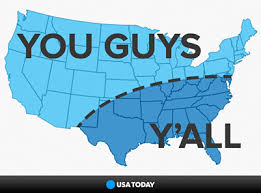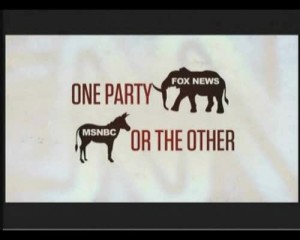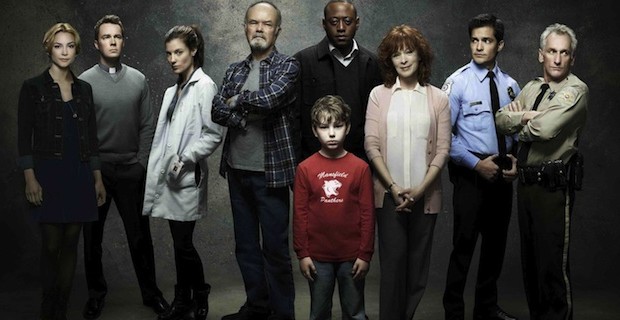Tuesday, April 22, 2014 1:23 am
Gerry Philipsen’s Speech Codes Theory refers to a “historically enacted, physically constructed system of terms, meanings, premises, and rules pertaining to communicative conduct” (421).
Philipsen shares six crucial propositions of the speech codes theory, including:
1) Wherever there is distinctive culture, there is a distinctive speech code
2) In any give speech community, multiple speech codes are deployed
3) A speech code involves a culturally distinctive, psychology, sociology, and rhetoric
4) The significance of speaking depends on the speech codes used by speakers and listeners to create and interpret their communication
5) The terms, rules, and premises of a speech code are inextricably woven into speaking itself
6) The artful use of a shared speech code is a sufficient condition for predicting, explaining, and controlling the form of discourse about the intelligibility, prudence, and morality of communication conduct.
This speech codes theory reminds me of when I came to the East Coast from California and heard students using terms such as “mad” in a context that was completely unfamiliar to me. To me the word “mad” meant angry, but I heard several students at Wake using to it describe something that could be classified as extreme. This demonstrates the Speech Codes Theory because the term’s meaning was directly dictated by a specific culture.

Tuesday, April 22, 2014 1:05 am
Deborah Tannen stated that the genderlect theory suggests that “masculine and feminine styles of discourse are best viewed as two distinct cultural dialects” (436). According to Tannen men use a style of language referred to as “report talk”, while women use a different dialect referred to as “rapport talk”. Communication between women tends to include expression of emotions and personal feelings, and consequently creates a deeper level of connection than is present through male communication. One example of this “rapport talk” is demonstrated in the movie Knocked Up. Allison, one of the main characters who is unexpectedly impregnated by a man she barely knows, is feeling down. Her sister, Debbie, uses tactics to cheer her up such as emphasizing the importance of positivity. She is trying to fix Allison’s problems by acknowledging that she understands what Allison is going through, but at the same time emphasizing the importance of moving past it and maintaining a positive attitude throughout the experience. This proves Tannen’s theory that women tend to focus more on emotion than men do, especially when attempting to provide advice and help another person solve their problems.
Allison and Debbie
Monday, April 21, 2014 6:21 pm
The Agenda Setting theory is the way mass media projects news and shapes the public agenda. What we deem to be important is important because we are told that it is. The mass media has the ability to transfer their ideas of what is important to their viewers ideas of what is important. A prime example of this would be the Malaysian flight that has not been found. It has been on the news because it is said to be important. One may argue that it does nothave significances in regard to our nation, but the fact of the matter is that it is important becauseit has made national news for weeks. The discussion of topic is now all about the Malaysian flightbecause it was told to us that it was important.
Monday, April 21, 2014 3:42 pm
Genderlect Styles, from Deborah Tannen, involves a theory that miscommunication between males and females parallels to miscommunication that occurs within two cultures. This is because two genders communicate in different styles from each other according to this theory. Tannen believes that men desire status while women desire connection. The difference between males and females in conversation reminds me of the movie, What Women Want. Mel Gibson plays the lead and he is an alpha male and advertising executive and is known for seducing women. He accidently shocks himself while holding an electric hairdryer and is able to understand women’s thoughts. He understands his selfishness and arrogance after understanding so many thoughts of women.
What Women Want
Monday, April 21, 2014 3:31 pm
Speech Codes Theory involves how individuals utilize speech codes. This communication theory involves speech codes, their substance and their influence on people in different cultures. The theory depends on six propositions. First, speech code is within every distinctive culture. Second, there are multiple speech codes within every community. The third, speech codes involve distinctive psychology, sociology and rhetoric. Fourth, involves the concept that speaking is determined by the speech codes used by bot the speakers and listeners in order to understand the communication. The fifth involves how the rules, terms and premises of speech code is encompassed in the act of speaking. Finally, the sixth proposition involves the force of speech codes in discussions. Gerry Philipsen founded this theory and an important component to the theory involves metacommunication. This theory reminds me of moving to the South from New York City. I grew accustomed to hearing phrases such as “y’all” instead of “you guys.” There is a distinctive culture attached to each meaning of the phrase. 
Monday, April 21, 2014 7:33 am
Agenda Setting puts forward the hypothesis that has the ability to sway peoples idea on issues in the world. One example we see in the world is the bias that we see in different news networks. Many believe that Fox news leans towards conservatives while MSNBC leans towards liberals. Many people believe that these networks try and spin stories in order to look more favorable for there favored political party. Many people also can have opinions changed by these networks when they seed only one side of an argument. This divide has caused a great divide between supporters of separate parties which shows the power of agenda setting. People have varied their behavior because of the information they are being fed by these networks and is causing a large problem in this country. 
Monday, April 21, 2014 7:17 am
Cultivation theory states that when people watch TV they tend to see the world as if it were a TV show. This is mostly focused on the disparity of men and women, lack of racial diversity, and the amount of violence that is seen on TV. When looking at violence one show that came to mind for me was CSI. The show centers around the solving around a murder. While most of the show has to do with the mystery and how the team will solve it. The thing is that when they are figuring out murders they show reenactments of the murder and tend to be violent in nature. They tend not to move on the plot or help the viewer understand what is going on but it is there to draw in the audience and shows the unnecessary violence. CSI
Monday, April 21, 2014 4:37 am
When my family visited Myrtle Beach, we were flooded with flyers and signs from another family who were missing a young girl. The young girl and her friend went missing recently and both the families were doing everything they could to alert the public and find out any information leading to the girl’s whereabouts. They did everything from demanding news coverage to renting out billboards. Apparently young girls go missing quite frequently in the Myrtle Beach area, the beach community just does what it can to keep it quite so tourists aren’t discouraged from visiting. This particular family I encountered just happened to have the money to buy billboards and back ads ran on TV and demand attention be paid locally, but I have yet to hear anymore about missing girls since I left the beach.
This story is an example of Agenda Setting. The issue of young women going missing is an important one to both young women visiting the beach and their families. Yet the mass media gets to pick which issues they chose to bring to the attention of the public (public agenda). Even if the story is presented to the public, framing will be used as to not alert the public enough to scare them away from the beach. Internet aggregations will also be used by concerned members of the community to create pressure that something be done about the issue based off of Communitarian ethics.
Monday, April 21, 2014 4:16 am
I chose to apply the Cultivation Theory to ABC’s show Resurrection. The first prong is the institutional process analysis (scholarship that penetrates behind the scenes of media organizations in an effort to understand what policies or practices might be lurking there). The only other organization I could find in conjuncted with ABC network was The Walt Disney Company.
For the second prong, message system analysis, I recorded how many incidents of dramatic violence (the overt expression or serious threat of physical force as part of the plot) occurred. This show didn’t display as much violence as other popular shows like Scandal or Game of Thrones so the other method of quantitative content analysis has to be used for numerical reports of exactly what the show contained.
The third prong is cultivation analysis which deals with how TV’s content might affect viewers. Evidence of mainstreaming occurs with this show mostly online where you can search #Resurrection to see people’s shared opinions. On the surface the show doesn’t appear to have much resonance because none has ever experienced a relative come back from the dead, but the real life situations they are put in might resonate with certain people’s experiences and emotions.

Monday, April 21, 2014 4:15 am
The Narrative Paradigm is a theory on stories that present the essence of human nature. My example of a Narrative Paradigm would be my personal story of why I chose to come to Wake Forest University.

There were many reasons why I chose to come to WFU. The obvious ones were excellent academics, a beautiful campus, great athletics, and the alumni and professors included many people I admired. But to me personally, I wanted to go to a university in North Carolina specifically because my family was here. I lived in New Jersey with my parents but my grandparents and extended lived here in North Carolina (and so did I until I turned 12 years old).
I visited many schools in North Carolina, but out of all the universities I visited they seemed too big; like a place one student could easily get lost in, with big campuses and large classroom sizes. Wake Forest felt like how I imagined North Carolina was supposed to feel like, like home. Walking around campus you saw faces you knew or faces smiling at you willing to stop for a conversation. I loved that. Wake Forest becomes my second family I came home to after visiting my first families on weekends.







